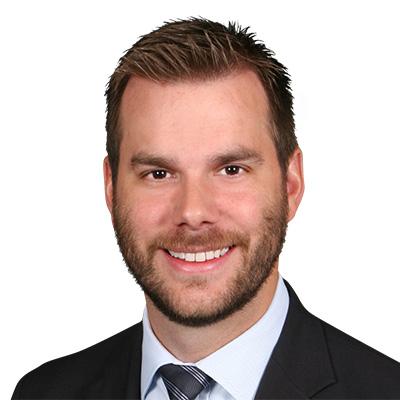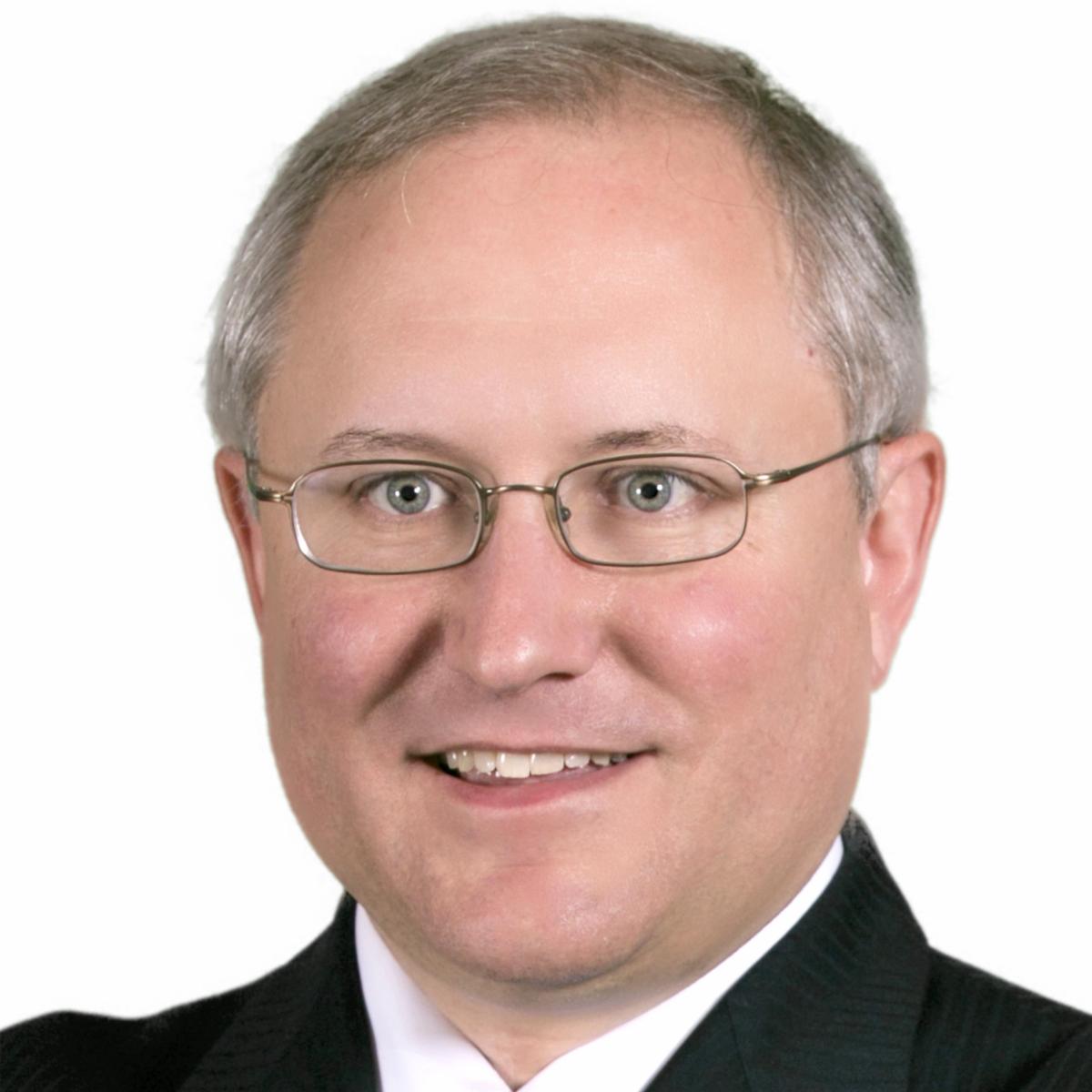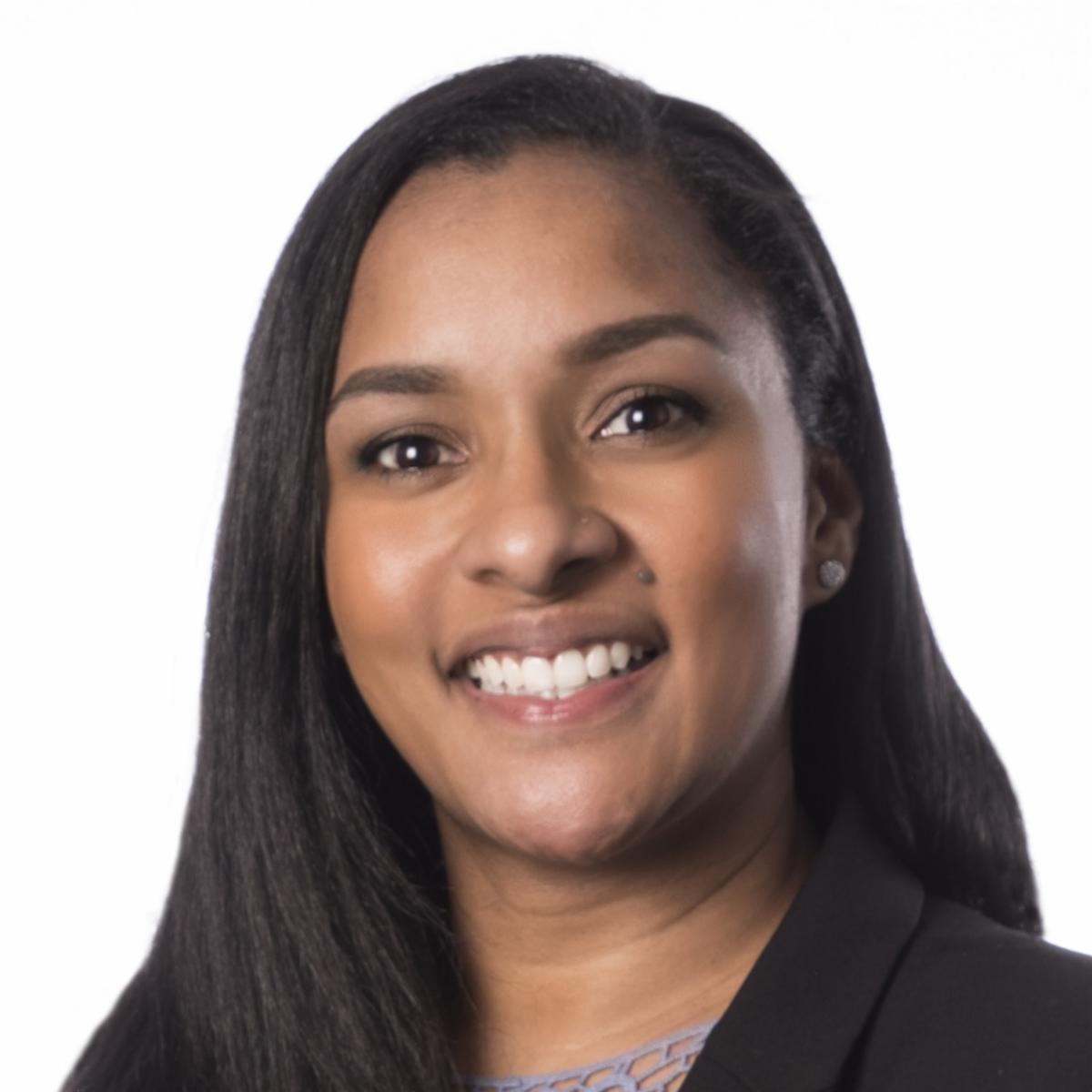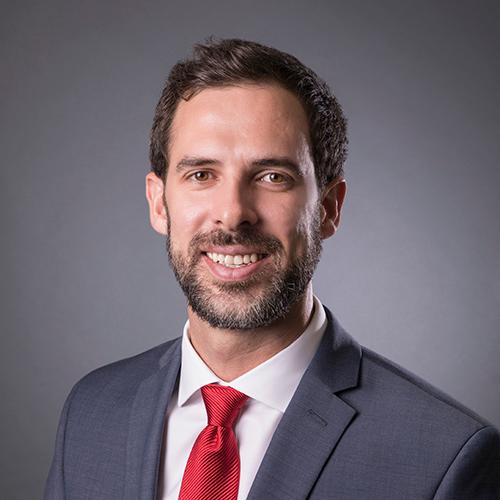 Message from the President Sean Pattison TMA Detroit Chapter President
I want to open this newsletter by thanking the TMA Detroit Chapter members. Thanks for continuing to support the Detroit Chapter, thanks for being patient with us as we continue to adapt to the current environment, and thanks for the feedback you provide that helps us improve as a Chapter. You, the members, are the core of the TMA Detroit Chapter. So, thank you!
I also want to encourage everyone to give themselves a pat on the back. This year hasn't been easy, but we continue to persevere. Hopefully, this letter finds everyone safe and healthy as 2020 continues. We've had challenges, but I've been impressed by how this Chapter and its members continue to thrive during these unprecedented times.
With our pivot into great virtual programming, consider the new opportunities this opens for you. Sponsor firms and members can get more involved by participating in a committee, assisting with an event, or being a panelist for an event. Please reach out to me or a board member for more information!
We also have the opportunity to join other Chapters' events and broaden our networking reach. Recently, one of our events brought together TMA members from Chicago, New York, Puerto Rico, and even Australia. I'm excited about the possibility for the great connections we can make with others. As we end 2020 and move into 2021, check the sidebar for the list of upcoming events. We'll continue to host meaningful virtual events to promote educational topics and virtual networking. I'm excited for the holiday party this year and look forward to celebrating with all of you.
A special thank you to our 2020 sponsors. Without them, none of this would be possible. The board is grateful for our long-tenured sponsors and to those that are new this year. Your sponsor dollars have made a significant impact on the board's ability to continue offering events. Look out for our 2021 sponsorship opportunities.
Thanks for taking the time to read this and the rest of our newsletter. Stay safe and healthy.
|
  Will the Real Party in Interest Please Stand Up?
In Michigan, the general rule is that only a realparty in interest may initiate a lawsuit. MCR 2.201(B). Although it is usually easy to identify the proper party (or parties), it becomes harder if a would-be plaintiff files for bankruptcy protection before initiating the lawsuit. A recent decision by the Michigan Court of Appeals illustrates the difficulty, and highlights how important it is to pay attention to the debtor's bankruptcy schedules.
In Karas v Mercy Health Physician Partners East Beltline, unpublished per curiam opinion of the Court of Appeals, issued October 15, 2020 (Docket No. 348943), the plaintiff, Mr. Karas, allegedly suffered a personal injury as a result of medical malpractice. Mr. Karas and his wife retained counsel to investigate a possible malpractice action against a nurse practitioner and her medical group. Before filing their lawsuit, Mr. Karas and his wife filed for bankruptcy protection under chapter 7 of the Bankruptcy Code.
When a debtor files for chapter 7 bankruptcy protection, all of the debtor's assets become property of the bankruptcy estate, including any rights the debtor may have to initiate a civil action. However, the debtor may list some property as "exempt"; and this property reverts back to the debtor to allow the debtor his or her "fresh start" after discharge. Relevant here, under § 522(d)(11) of the Bankruptcy Code, a debtor may claim an exemption for a potential cause of action for personal bodily injury in an amount not to exceed $25,150. Creditors must object if they believe a debtor is claiming an improper exemption.
In the Karas case, Mr. and Mrs. Karas claimed an exemption for the potential medical malpractice action. No one objected. After their bankruptcy case closed, they filed suit on the medical malpractice claim. The defendants moved for summary disposition, asserting that the action belonged to the bankruptcy estate, claiming that the plaintiffs were not the real parties in interest, and only the bankruptcy trustee had standing to sue. The trial court agreed, granting summary disposition for the defendants, dismissing the complaint and denying a subsequent motion for reconsideration.
The Court of Appeals reversed, noting that "it is undisputed that plaintiffs claimed an exemption for this medical malpractice claim when they filed their petition for [c]hapter 7 bankruptcy without objection." The Court of Appeals held that, when a debtor claims an exemption in a cause of action and no one objects, the debtor remains a real party in interest and may file a lawsuit to pursue that action.
This case demonstrates the importance of reviewing bankruptcy schedules carefully and in advance of the expiration of the time to object to claimed exemptions in a bankruptcy proceeding. If you have any questions, please contact one of the authors or your Miller Canfield attorney.
|

COVID-19 Related Fraud
Director and Senior Economist, O'Keefe
The world feels more chaotic than usual. Promises of a vaccine and improving economic indicators provide reasons for hope, yet great uncertainty remains as to how this pandemic will evolve into the future - both from an epidemiological and economic perspectives. To add to our economic aggravations, fraudulent schemes are being perpetrated all around us. The scale, speed and magnitude of this economic downturn has created opportunity for fraudsters rarely seen before. While some fraud related to government programs have been detected and publicized, much of the fraud within companies is only beginning.
Generally, recessionary periods increase the likelihood of fraud due to increased financial needs and pressures felt by both companies and individuals. Financial need, along with perceived opportunity and rationalization, commonly known as the Fraud Triangle, are the three factors which may cause an individual to commit occupational fraud. This recession has also provided unprecedented opportunity for fraudsters to capitalize upon government funds being doled out at breakneck speed. Further opportunity has unfortunately also been provided by the number of people desperate for financial or healthcare assistance. Across the country, states have reported hundreds of thousands of possible cases of fraud related to unemployment benefits. This has resulted in cash-strapped states being defrauded of millions of dollars, while countless individuals have either been denied their unemployment benefits or become subject to long delays in receiving those benefits. The disrupted distribution of benefits has undoubtedly wreaked havoc upon many lives, yet states have been unable to quickly address the issues due to their antiquated systems. According to Federal Trade Commission data, there were approximately 350,000 reports of identity theft in the second quarter of 2020, more than doubling the same figure from 2019. Much of the identity theft related to unemployment benefits. Other fraud activities with large increases since COVID-19 emerged include travel and vacation (mostly due to issues surrounding cancellations and refunds) and online shopping, which was fertile ground for fraudsters to exploit individuals stuck at home and eager to purchase anything which may lower their risks due to COVID-19. These online scams included everything from toilet paper and hand sanitizer to bogus cures and vaccines, testing kits, personal protection equipment (PPE). Business loans and grants have also been the target of fraud schemes. The Paycheck Protection Program ("PPP"), which quickly disbursed almost 5 million loans worth over $500 billion, was particularly susceptible to fraud due to the pace and scale of this program. In addition, the program included a good faith certification requiring that "current economic uncertainty makes this loan request necessary to support the ongoing operations of the Applicant".¹ This rather subjective clause was clearly a trade-off with foregoing time consuming due diligence usually involved with loans of this size and nature. As expected, some individuals decided to take extremely generous interpretation of what is "necessary." Egregious examples include a Floridian who was recently charged with fraud for making false statements to a bank which resulted in nearly $4 million dollars in federal loans, some of which went towards the purchase of a blue Lamborghini.² In Detroit, a man obtained $590,000 in loans from the Paycheck Protection Program for a business which was dissolved in July 2019.³ Apparently also being a car enthusiast, the man used the funds to purchase two Cadillac Escalades, a Dodge Charger, and a Hummer. In contrast with most white-collar investigations which often take years to complete, investigations related to PPP fraud have been conducted with an apparent sense of urgency. As of early August, 30 cases had been filed by the Justice Department related to tens of millions of dollars.4 The pace of these investigations, as well as the number of federal agencies involved, indicates the federal government is attempting to deter further fraudulent activity and possibly encourage some businesses to save the government the resources by simply returning the loans. When Treasury Secretary Steven Mnuchin first mentioned that the government would be conducting investigations of fraudulent PPP loans, about $30 billion in loans were returned.5 The Small Business Administration has said it will investigate all loans over $2 million, however it is likely that many smaller loans will also be investigated if the related business raises red flags. The proliferation of fraud related to government programs should provide ample reason for companies and shareholders to remain vigilant of occupational fraud within their organizations. As recessionary conditions continue, the three elements of the Fraud Triangle will become increasingly evident amongst both private and public companies; as a result of declining business performance and the economic hardships inflicted by pay cuts, furloughs, and layoffs. Such occupational fraud generally falls into three categories: misappropriation of assets, corruption, or financial statement fraud. The Association of Certified Fraud Examiners ("ACFE") found that the most common form of fraud is asset misappropriation, with a median loss of approximately $100,000. At a time when cash flow is vital, businesses must act to ensure all proper internal controls are in place. This should include mechanisms to both detect and report fraud. According to the ACFE, almost half of all occupational fraud occurs due to a deficiency in internal controls.6 Therefore today is the best day to reassess anti-fraud policies, implement anti-fraud training, and improve compliance with existing measures.
- https://www.latimes.com/politics/story/2020-07-23/feds-begin-prosecuting-fraudulent-ppp-coronavirus-loans-some-cases-will-be-hard-to-win
- https://www.nytimes.com/2020/07/27/us/lamborghini-ppp-covid-19.html
- https://www.justice.gov/usao-edmi/pr/detroit-resident-charged-covid-19-wire-fraud-scheme
- https://smallbiztrends.com/2020/08/ppp-fraud.html
- https://www.latimes.com/politics/story/2020-07-23/feds-begin-prosecuting-fraudulent-ppp-coronavirus-loans-some-cases-will-be-hard-to-win
- https://www.acfe.com/press-release.aspx?id=4295010491
|
Crestmark Provides More Than $23.1 Million in Commercial Financing to 11 Businesses in the First Half of November
|
Plunkett Cooney named among 'Best Law Firms' in America
|
Great Lakes Business Credit:
A Trusted Bridge for Besieged Borrowers
|
TMA Learning Link™
TMA Learning Link™ is where to find content and information on topics important to our community in the turnaround, restructuring, and corporate renewal industry. We are proud to offer this new benefit to being a member of TMA.
Learning Link provides members-only access to best-in-class content:
- Journal of Corporate Renewal (JCR) articles and columns
- TMA global and regional conference videos
- TMA Talks podcasts
- TMA webinars
Content is searchable by topic, format, and keywords. To access TMA Learning Link™, make sure you are logged into turnaround.org as a TMA member. You'll find it in the upper-right corner of your screen.
As a TMA member, you receive exclusive access 24/7. It's the one place for TMA members to easily find articles from the JCR, videos of speakers and sessions at TMA conferences, podcasts from TMA Talks, and webinars from TMA's Education Department.
|
|
TMA Member Benefits include:
· Access to all local, nationwide, and international networking and education events - as a member, you can attend these events FREE or at a discounted member price; o Upcoming events can be found here: https://turnaround.org/detroit/events
· Small group, members-only, virtual networking sessions allowing for one-on-one connecting;
· Local, regional, and international connectivity with access to: (1) our Membership Directory that includes the most diverse member mix of any association, and (2) TMAConnect, an innovative online networking platform that pairs you with other TMA members matching the criteria you seek in an ideal networking connection;
· Access to TMA Learning Link™, an online resource library filled with previously recorded TMA Town Halls, breakout sessions from the Global conferences, and select programs from TMA chapters. We're continuously adding new content, so there is always more to learn!
· Receipt of the quarterly Newsletter of Corporate Renewal, 9 issues of TMA Global's Journal of Corporate Renewal, and the weekly e-newsletter, The Weekly Report, and so much more!
· Member Volunteer Committees from various segments of the industry who work together to actively coordinate chapter activities and services.
· Annual Sponsorship Opportunities to get your company name in front of the industry via the website, enewsletters, social media and events.
|

|
The Journal of Corporate Renewal is the premier publication for professionals in the corporate renewal industry. Read the June 2020 issue now and search for past articles in the TMA Learning Link.
|
|
|
Contact Information
Has your contact information changed recently?
If so make sure to update your profile at turnaround.org so we can keep you up-to-date on upcoming events and important news.
|
Chapter Contact
Amanda Rymiszewski
Chapter Executive
(313) 910-5066
Please note our new mailing address:
18 Lone Pine Road
Bloomfield Hills, MI 48304
|
|
|
December 2
TMA Chicago/Midwest & Detroit Chapters Members Only Networking Power Hour
5:oo p.m. EST
December 16 TMA Detroit Annual Holiday Networking 4:00 p.m. EST _______________________ Please visit our website for more information and to register for these and all upcoming events.
|
February 23, 2021
2021 TMA Distressed Investing Conference Networking Power
The Annual: TMA's 33rd Annual Conference _______________________ Upcoming events for TMA Global and other TMA Chapters can be found here:
https://turnaround.org/events
|
2020 - 2021
Board of Directors
Sean Pattison
President
Plante Moran
Marc Swanson
President Elect
Miller Canfield Paddock & Stone
Crestmark
Amanda C. Vintevoghel
Immediate Past President
The Dragich Law Firm
Varnum LLP
Laura J. Eisele PLC
Conway MacKenzie
EDSI Consulting
Dickinson Wright
Crestmark
Highline Law PLC
Ex-Officio Members:
Eric Grozenski
nextGen Chairperson
Northview Capital LLC
Katie Montague
NOW Chairperson
Alvarez & Marsal
|
|
Thank you for your support!
|
TMA Detroit is currently seeking sponsor firms for our 2020-2021 programming year. Consider becoming a sponsor today!
For more information on becoming a sponsor contact:
or
|
|
WELCOME TO OUR NEW MEMBERS
Eric R. Solomon
Conway MacKenzie, LLC
Jacob Schostak
Schostak Family Office
Stephen Elwell
iDev Partners
Mitchell M. Musial
Mitchell M Musial, PLLC
Elaine Frydrych
Fifth Third Bank
Petur Gislason
Stout
Kenneth Creighton
DME Hospitality Advisors
Hansen Clarke
Scott St. Clair
Ricardo Strategic Consulting
Dylan M. Kiger
Jeffery M. Wyatt
J Matthew Wyatt Consulting
Daniel Burkhart
Dickinson Wright PLLC
Zachary R Tucker
Winegarden, Haley, Lindholm, Tucker and Himelhoch, PLC
Joshua D Muhleck
Jaffe Raitt Heuer & Weiss PC
Hailey R. Kimball-Dexter
Jaffe Raitt Heuer & Weiss PC
Mark Barrott
Plante Moran
Greg Alonso
Plante Moran
Interested in learning more about TMA membership?
|
|
Newsletter Submissions
We are always looking for new content for our newsletter.
- Have an article you wrote?
- Received a promotion?
- Quoted in a newspaper or other publication?
- Changed jobs?
We want your information so we can help promote you, our member!
Send us your submissions for our next newsletter here.
|
|
Newsletter
Co-Chairpersons
Laura Eisele
Glenn Kushiner
|
|
 |
|